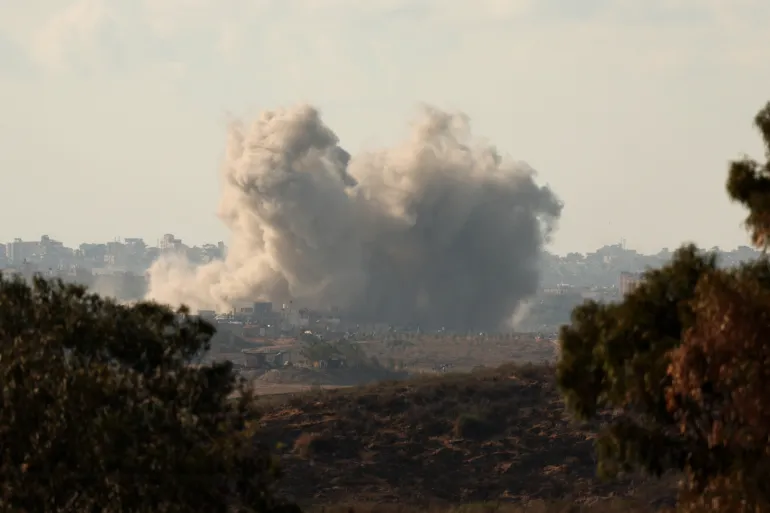Netanyahu Navigating the Complexities of Middle Eastern Geopolitics
In the labyrinthine landscape of Middle Eastern geopolitics, the recent rift between Israeli Prime Minister Benjamin Netanyahu and US President Joe Biden over the Rafah assault encapsulates the intricate dance of power, principle, and pragmatism that defines the region’s diplomatic arena. Against a backdrop of escalating violence and entrenched conflicts, Netanyahu’s refusal to heed Biden’s call for a cessation of hostilities in Rafah speaks volumes about the complexities and challenges of navigating alliances, security imperatives, and international pressures.

The Rafah assault, launched by Israel in response to mounting security threats, has reverberated across the global stage, drawing scrutiny and condemnation from international actors. In the midst of this crisis, President Biden’s plea to Netanyahu for restraint and dialogue represents a diplomatic overture aimed at de-escalating tensions and averting further bloodshed. However, Netanyahu’s decision to press ahead with the offensive underscores his unwavering commitment to safeguarding Israel’s security interests, even in the face of staunch opposition from a key ally.
At its core, the Netanyahu-Biden standoff reflects divergent perspectives on the Israeli-Palestinian conflict and the broader dynamics of regional security. While the United States has traditionally been a steadfast supporter of Israel, providing military aid and diplomatic backing, the Biden administration’s efforts to recalibrate US policy in the region have introduced new complexities into the bilateral relationship. Netanyahu’s defiance of Biden’s plea highlights the delicate balance of power and influence in the Middle East, where strategic calculations often trump ideological alignments.
Moreover, Netanyahu’s decision to reject Biden’s entreaty carries significant implications for the prospects of peace negotiations and the stability of the region. By opting to escalate military operations in Rafah, Netanyahu risks undermining US-led efforts to revive the peace process and foster dialogue between Israelis and Palestinians. In doing so, he signals a willingness to prioritize short-term security objectives over the pursuit of a sustainable peace agreement, further complicating the path to reconciliation and exacerbating tensions on the ground.
Yet, Netanyahu’s bold stand also reflects the broader strategic calculus of Israeli leadership and its determination to assert its sovereignty and security in the face of mounting challenges. As a nation surrounded by hostile neighbors and facing threats from non-state actors, Israel’s actions in Rafah must be understood within the context of its existential imperatives and the imperative to defend its citizens from harm. For Netanyahu, the decision to proceed with the assault underscores his commitment to upholding Israel’s security at all costs, even in the face of international condemnation.
In navigating the fallout from Netanyahu’s defiance, the Biden administration confronts a delicate balancing act between upholding its commitment to Israel’s security and advancing its broader foreign policy objectives in the Middle East. While the United States remains a staunch ally of Israel, Biden’s efforts to promote human rights, democracy, and diplomatic engagement necessitate a recalibration of US-Israeli relations in light of recent developments. By urging restraint and dialogue, Biden seeks to strike a delicate balance between supporting Israel’s security interests and advocating for a just and equitable resolution to the Israeli-Palestinian conflict.
As the Rafah assault continues to unfold, the stakes for regional stability and the prospects of peace have never been higher. Netanyahu’s defiance of Biden’s plea underscores the complexities and challenges of navigating the turbulent waters of Middle Eastern diplomacy, where strategic calculations, security imperatives, and ideological considerations intersect in complex ways. Only through sustained diplomatic engagement, multilateral cooperation, and a renewed commitment to dialogue can the United States and its allies hope to address the root causes of the Israeli-Palestinian conflict and advance the cause of peace and stability in the region.
To read all the latest Post on Politics Check out our Politics Page.






